Junying Huang
Enhancing Prototypical Few-Shot Learning by Leveraging the Local-Level Strategy
Nov 08, 2021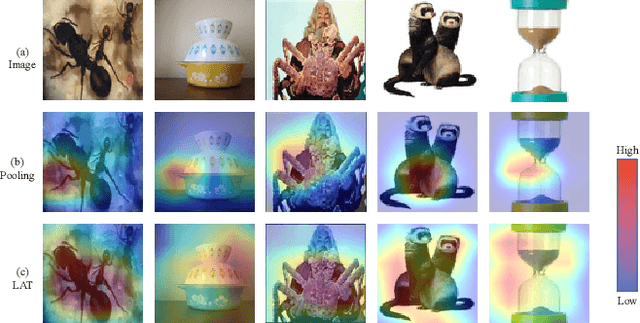

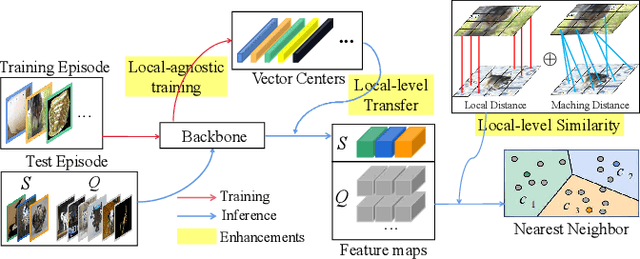
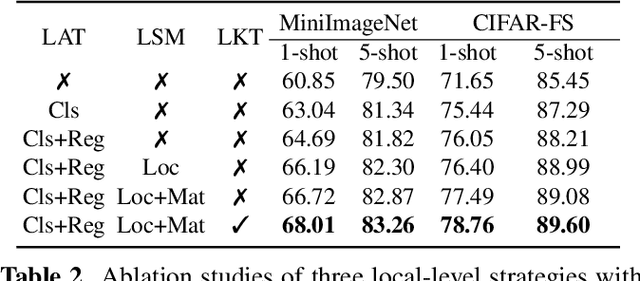
Abstract:Aiming at recognizing the samples from novel categories with few reference samples, few-shot learning (FSL) is a challenging problem. We found that the existing works often build their few-shot model based on the image-level feature by mixing all local-level features, which leads to the discriminative location bias and information loss in local details. To tackle the problem, this paper returns the perspective to the local-level feature and proposes a series of local-level strategies. Specifically, we present (a) a local-agnostic training strategy to avoid the discriminative location bias between the base and novel categories, (b) a novel local-level similarity measure to capture the accurate comparison between local-level features, and (c) a local-level knowledge transfer that can synthesize different knowledge transfers from the base category according to different location features. Extensive experiments justify that our proposed local-level strategies can significantly boost the performance and achieve 2.8%-7.2% improvements over the baseline across different benchmark datasets, which also achieves state-of-the-art accuracy.
Plug-and-Play Few-shot Object Detection with Meta Strategy and Explicit Localization Inference
Oct 26, 2021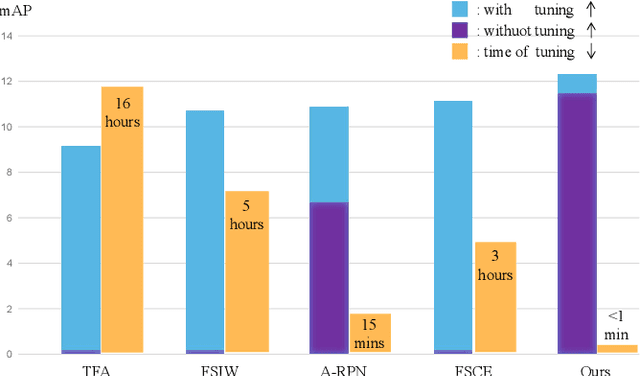
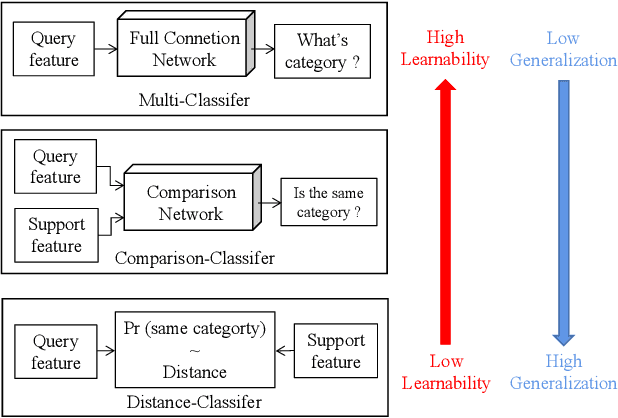
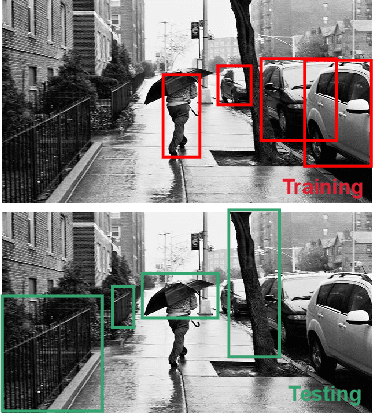

Abstract:Aiming at recognizing and localizing the object of novel categories by a few reference samples, few-shot object detection is a quite challenging task. Previous works often depend on the fine-tuning process to transfer their model to the novel category and rarely consider the defect of fine-tuning, resulting in many drawbacks. For example, these methods are far from satisfying in the low-shot or episode-based scenarios since the fine-tuning process in object detection requires much time and high-shot support data. To this end, this paper proposes a plug-and-play few-shot object detection (PnP-FSOD) framework that can accurately and directly detect the objects of novel categories without the fine-tuning process. To accomplish the objective, the PnP-FSOD framework contains two parallel techniques to address the core challenges in the few-shot learning, i.e., across-category task and few-annotation support. Concretely, we first propose two simple but effective meta strategies for the box classifier and RPN module to enable the across-category object detection without fine-tuning. Then, we introduce two explicit inferences into the localization process to reduce its dependence on the annotated data, including explicit localization score and semi-explicit box regression. In addition to the PnP-FSOD framework, we propose a novel one-step tuning method that can avoid the defects in fine-tuning. It is noteworthy that the proposed techniques and tuning method are based on the general object detector without other prior methods, so they are easily compatible with the existing FSOD methods. Extensive experiments show that the PnP-FSOD framework has achieved the state-of-the-art few-shot object detection performance without any tuning method. After applying the one-step tuning method, it further shows a significant lead in both efficiency, precision, and recall, under varied evaluation protocols.
 Add to Chrome
Add to Chrome Add to Firefox
Add to Firefox Add to Edge
Add to Edge